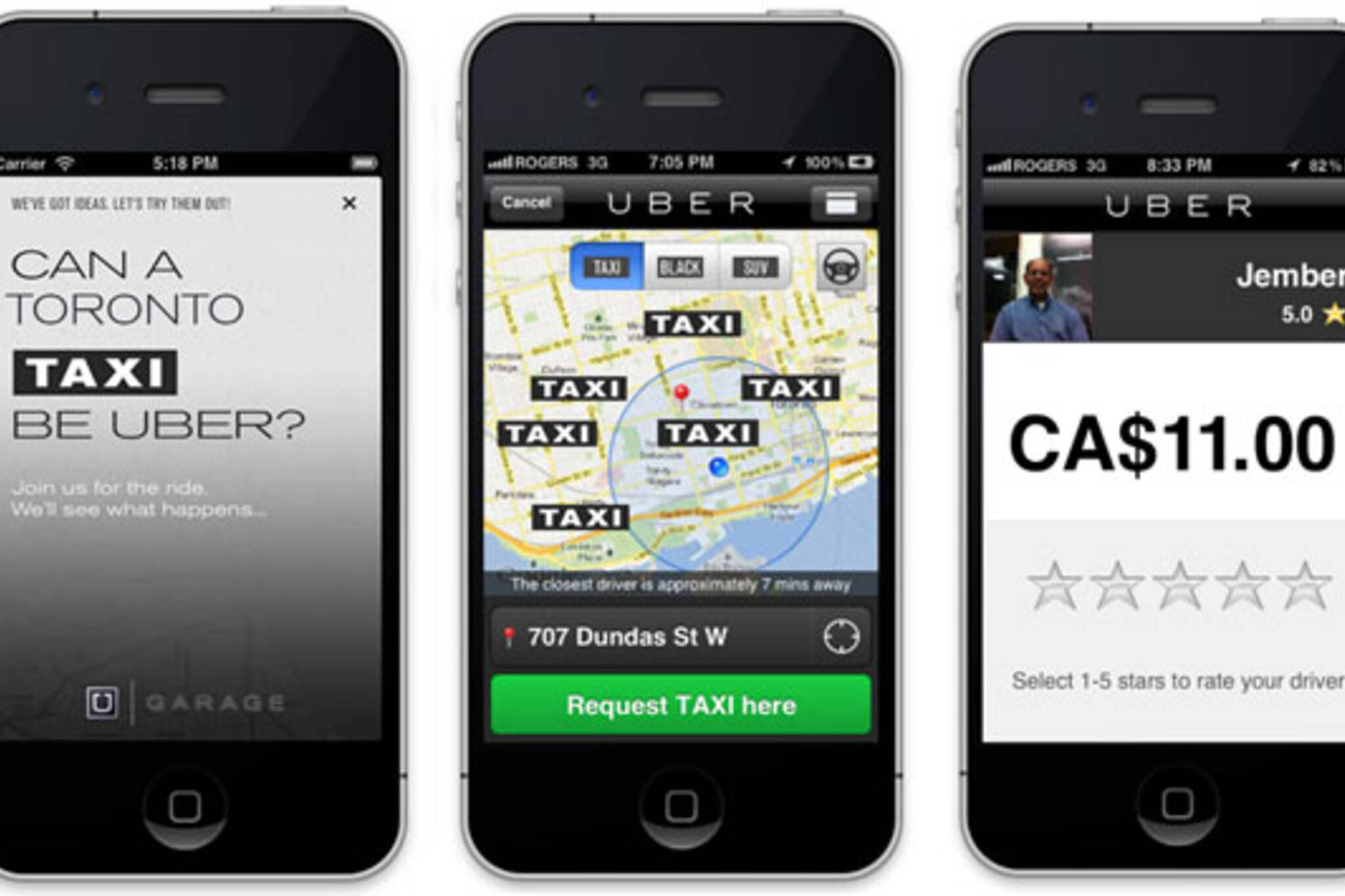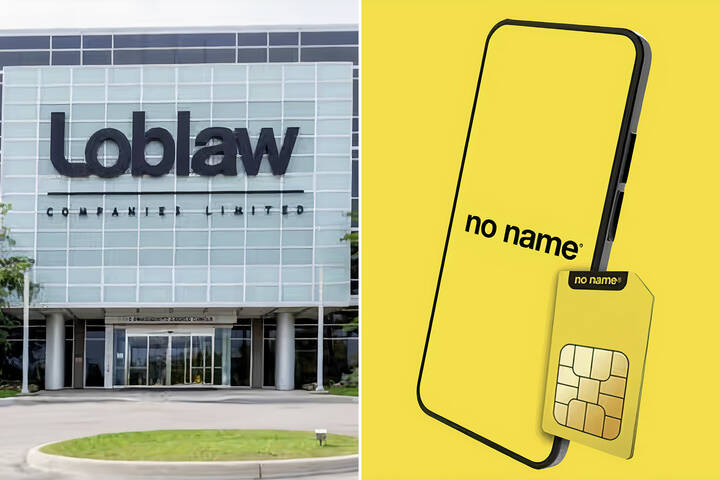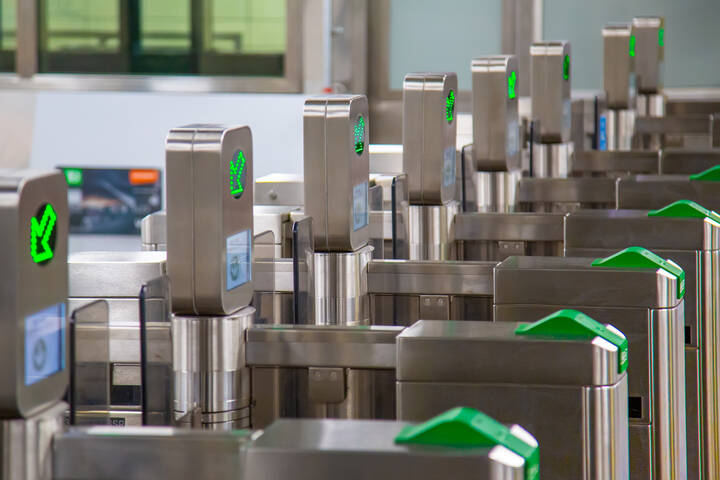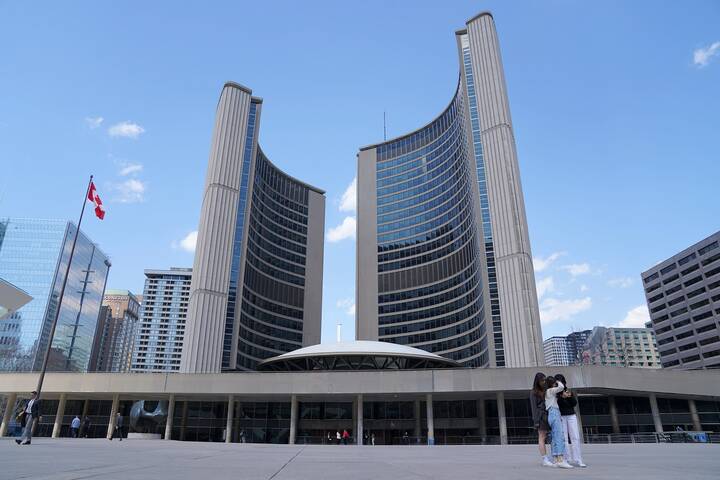
Uber weighs in on recent licencing offence charges
Ever since Uber entered the taxi game in Toronto, there's been murmurs about the company's lack of a licence to dispatch cabs. Given that the Uber app merely connects customers with licenced cab drivers (Uber owns no vehicles), its stance is that it's not a transportation company and thus doesn't require certification to dispatch cars. As it happens, the City of Toronto doesn't share this point of view. The company was recently charged with a slew of municipal licencing offences, because, as Richard Mucha, Acting Manager of Licensing Enforcement told the Toronto Star, "if you plan on running a limousine service in the City of Toronto, or a taxi cab brokerage, then you require a licence."
We caught up with Uber's General Manager, Andrew Macdonald, to find out what the company thinks of the charges and how it plans to respond.
When was Uber charged by the City with the 25 municipal licencing offences?
As a matter of policy, I won't speak specifically to the charges mentioned, but I will speak generally to some of the issues raised.
When and how does Uber plan to respond?
We plan to continue our dialogue with the city and continue to contribute to the improvement of the industry for consumers and drivers alike. We think that ultimately the city wants to bring innovation, consumer choice and competition to the market.
What is your specific response to Mucha's claim that Uber needs a licence to dispatch?
Uber is a lead-generation technology platform for the limousine and TAXI industries. We aim to connect customers of high-quality transportation to the transportation providers closest to them. We don't own cars. We don't employ drivers. We parter with companies and individuals who are already licensed to provide great service to Torontonians. The technology we're providing isn't covered by the current city of Toronto by-laws.
To your knowledge, would the City be willing to grant you such a license?
I don't think it would be fair to speculate on this topic.
Has Uber ever applied for a licence? Why hasn't Uber taken the same approach as Hailo in this regard?
We haven't applied for a license because we are a technology provider. We believe the technology we're offering isn't covered by the current laws in place in Toronto. We do our legal and regulatory homework before going into a city and only launch if we feel that the Uber system is legal under existing regulatory framework.
Does Uber plan to continue to run its business in Toronto as usual for the forseable future?
Yes! Because we believe firmly in what we are doing, and we are operating in the right fashion. Customers are crazy about Uber. It's a convenient, efficient and elegant ride. It's a safe transportation option. We improve drivers' lives by helping them earn a better living. We help grow limo companies. We create new jobs and help the economy. We bring innovation to Toronto just as it refocuses on becoming an innovation hub. We make city living better and complement and improve the existing transportation infrastructure. We are part of a sustainable urban transport vision (Uber, bikes, TTC, car sharing, etc. = ditch your second car). We reduce drinking and driving by making safe transport available at the push of a button. I could go on and on and on (in case you can't tell!).
Is there anything else you'd like to say about the matter?
To address a few of unclear points in The Star article:
1) Uber's TAXI platform charges the consumer the fare indicated on the TAXI's meter plus a 20% gratuity. Our customers who use the Uber platform are fully aware that the gratuity will be applied for the driver, and are choosing to pay it by using the app (just as they would choose to tip at the end of a ride if they called or hailed a cab otherwise). The meter is used to measure the rate and then the metered amount is entered into the app.
2) The TAXI driver pays Uber a service fee which comes out of total fares.
3) As far as our research goes, it is common practice for some taxis and taxi companies to charge for extra services above the meter, such as credit card fees.
4) While we have encountered resistance led by incumbents and vested industry interests in some markets, we've made great strides in most of the 20+ cities to provide a high quality, reliable and safe transportation option for consumers, and a better living for drivers. For a recent great example of this, please see legislation passed yesterday in Washington.
Latest Videos
Latest Videos
Join the conversation Load comments







